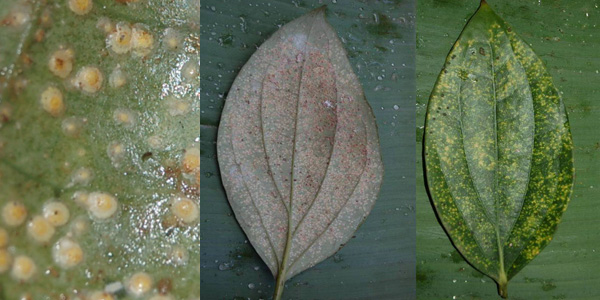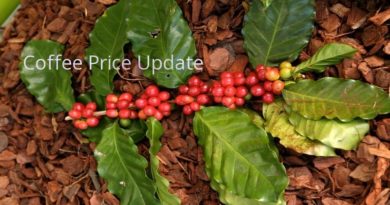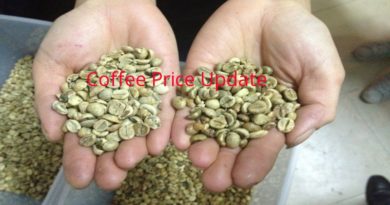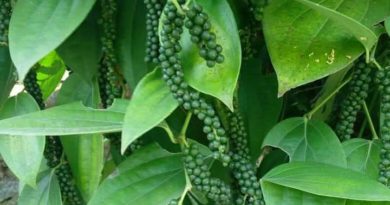Scale Insect attack in Pepper
Scale insect is an occasional pest of pepper. The attack is mainly seen in summer months. They feed on plant sap from tender parts. The infected leaves show chlorotic symptom and eventually dry up. Depending on the level of severity proper control measures need to be adopted.
Common signs and symptoms
- Scale insects appear as encrustations on stems, leaves and berries
- They feed on plant sap resulting in yellowing and drying of infested portions of the vine.
The symptoms are very much characteristic of the problem and can be easily distinguished from other problems.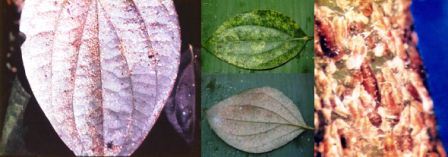
Reasons
Among the various scale insects recorded on black pepper, mussel scale (Lepidosaphes piperis) and coconut scale (Aspidiotus destructor) cause serious damage to the vines at higher altitudes and also to older cuttings in nurseries in the planes.
Females of mussel scales are elongated (about 1mm length) and dark brown and coconut scales circular (about 1mm diameter) and yellowish brown.
Scale insects are sedentary, remaining permanently fixed to plant parts and appear as encrustations on stems,leaves and berries.
They feed on plant sap and cause yellowing and wilting of infested portions; in severe cases of infestations the affected portions of vines dry up. The pest infestation is most severe during post monsoon and summer periods.
Ideal Management Strategy
- Clip off and destroy severely infested branches. Two sprayings of dimethoate (0.05% at fortnightly intervals after the harvest of berries effectively control black pepper mussel scale). Initiate control measures during early stages of pest infestation.
- In nurseries spraying neem oil 0.3% or Neemgold 0.3% or fish oil rosin 3.0% is also effective in controlling the pest infestation.
- Two sprays of Azadiractin 5000 ppm at 15 days interval after the incidence of scale insect.
- Thiomethoxam 0.013% two sprays at an interval of 15 days after incidence of scale insect is also recommended.
Natural enemies of Scale insects
- Parasitoids: Encarsia lounsburyi, Aphytis sp. etc.
- Predators: Mite: Bdella sp., Thrips: Karnyothrips melaleucus, Aleurodothrips fasciatus, Beetle: Ladybird beetle, Chilocorus circumdatus, C.nigrita, Lacewings, Pseudoscymnus dwikalpa, Pharoscymna shorni, Sticholotisex anguis, Cybocephalus sp. etc.
Some of the images of identified scale insects affected Plants
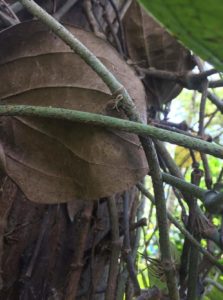
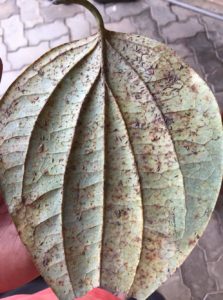
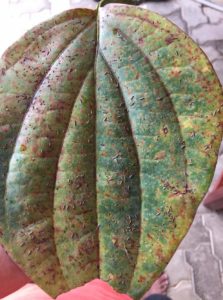
Reference:Kerala Agricultural University
Also read about Pepper Crop Management :
Stunted disease in Pepper
Pollu disease(Anthracnose) in Black pepper
Management of the Monsoon Diseases in pepper plantation – 1
Management of the Monsoon Diseases in pepper plantation – 2
Indian Black Pepper Varieties
